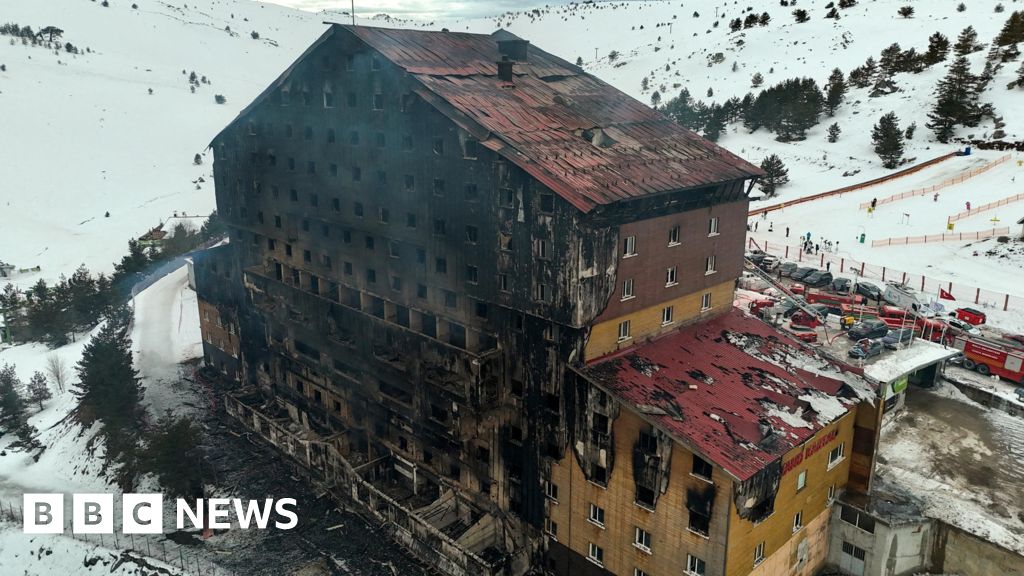Thai Police Kill 107 Muslims In Troubled South
Thai authorities said police and soldiers battled armed groups, who launched coordinated dawn attacks at 10 police stations and security checkpoints in the Muslim-dominated provinces of Yala, Pattani and Songkhla near the Malaysian border.
The last battle zone was at a mosque outside Pattani provincial town, where between 32 and 38 Muslims were killed when troops stormed the mosque, , , reported Agence France-Presse (AFP).
Smoke billowed from the heavily-damaged brick mosque as police and internal security officials examined the scene.
Thai authorities said police and soldiers battled armed groups, who launched coordinated dawn attacks at 10 police stations and security checkpoints in the Muslim-dominated provinces of Yala, Pattani and Songkhla near the Malaysian border.
They said the attackers were mostly teenagers, poorly armed with only machetes and a few guns.
Television footage showed their dead bodies being lifted from pools of blood and thrown unceremoniously into trucks.
Major Chitnart Bunnothok, spokesman for the Fourth Army which patrols the troubled region, said before the mosque raid that 93 attackers had been killed, 12 were injured and one was arrested.
Elsewhere in Pattani, armored personnel carriers patrolled the streets and helicopters hovered overhead.
Unknown
Abdur Rahman, a Muslim leader involved in a pressure group for peace in southern Thailand, told IOL that a mystery still shrouds the incident.
The government, however, has blamed Muslim "separatists" who have sought to carve out a homeland in the Muslim-majority south of this predominantly Buddhist country for decades.
Deputy Director of the Internal Security Command, General Panlop Pinmanee, said it was "absolutely certain" Wednesday’s raids were mounted by "separatists" and that they were trained by militant groups operating in the south.
Prime Minister Thaksin Shinawatra did not contradict Panlop’s assertion that "separatists" were to blame, but downplayed the sectarian nature of the trouble, saying that the militia responsible was made up of both Thai Muslims and Buddhists.
He said only two security personnel were killed and that the toll was low because police and army were well prepared and the attackers were only lightly armed.
The premier linked the incident to a January 4 attack on a military camp in nearby Narathiwat province.
Hatred
Muslim leaders said they feared Wednesday’s unprecedented violence, and the high death toll among the young Muslims, would stir up feelings of hatred and intolerance.
"The incident will definitely affect Muslim people’s feelings. They will have bad feelings towards authorities and the turmoil will continue, it will not be resolved," Abdul Rosue Aree, deputy chairman of the Islamic Council in Narathiwat, told AFP.
He is concerned that the bloody incident would spark a major deterioration in the south where resentment of central authority already runs high.
"I am really concerned that the problems in the south will escalate even further," he warned.
Mushairah agreed that things will not be the same after this incident.
"I fear that its going to get worst in the coming days," she told IOL.
Thai Muslim leaders have been trying to defuse tensions in Pattani, Narathiwat and Yala since last September.
Terrorized by the latest spree of mass arrests and a crackdown on Islamic schools by Thai authorities, scores of Muslims, including scholars and leaders, are either hiding or fleeing south Thailand.
Thailand is a predominantly Buddhist nation but about five percent of the population is Muslim, and most live in the five southern provinces bordering Malaysia.
Pattani, Yala and Narathiwat are the only Muslim majority provinces in Thailand.
Muslims in these provinces have long complained of discrimination in jobs and education and business opportunities.
The South was a rich Malay kingdom until it was overrun by the Buddhist kingdom of Siam in the late16 th century when it declared its full independence from its earlier status of semi-independence under the rule of the Thai kingdoms of Sukhothai and Ayutthaya.
In 1909 , it was annexed by the Kingdom of Siam as part of a treaty negotiated with the British Empire.
Both Yala and Narathiwat were originally part of Pattani, but were split off and became provinces of their own.
There still exists a separatist movement in Pattani that at times erupts in violence like in the late1980 ’s when the Pattani United Liberation Front (PULO) fought against the Thai forces for a separate Muslim South.



